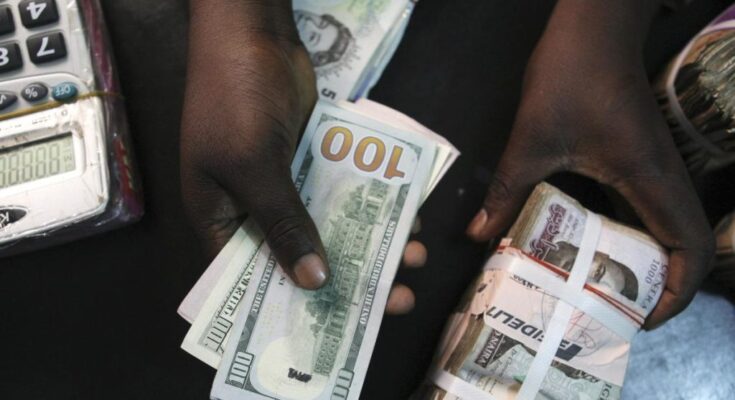Banks are inducing their customers to sell the foreign currencies domiciled in their branches, The Nation has learnt.
Some of the banks, it was discovered, have developed platforms to sensitise customers on how the dollar deposits in their domiciliary accounts can be converted to naira.
In a note via SMS to customers, some of the banks said domiciliary account holders can change United States (U.S.) dollars in their accounts to naira directly on its internet banking platform instantly.
The SMS read: “It is as instant as a regular transfer between accounts. The service is available between 9:00am to 4:00pm Mondays to Fridays, excluding public holidays.
“Customers are expected to log into their internet banking platform, go to FX transaction portal and select FX sales.”
Although the bank claimed the rate was competitive, it pegged transaction rate at N1, 450 to the dollar.
The rate was lower than the N1, 510/$ exchange rate at the black market yesterday.
The bank also pegged the daily transaction limit at $50,000.
When contacted, a staff of the Central Bank of Nigeria (CBN), confirmed the development, saying: “Yes, it is true that banks may contact customers who have domiciliary accounts and recommend converting their foreign currency to naira.
“However, it is important to note that this is not a mandatory directive from the Central Bank of Nigeria (CBN). Rather, it is simply a service being offered by the banks.”
The anonymous official noted: “Currently, the official exchange rate for selling foreign currency is actually higher than the black market rate. Therefore, converting through your bank could be a beneficial option.
“Having more foreign currency flow through official channels will help to stabilize the market and boost the economy.
“It is important to understand that banks are in the business of facilitating financial transactions, including foreign exchange.
“While they may suggest converting your foreign currency, the decision ultimately lies with you. There is no obligation to sell your foreign currency, even if your bank recommends it.”
An official at a commercial bank told this newspaper: “We will not be the one to initiate that move but if we have customers who may have inflows and want to sell, what we will do is to tell the customer to write an instruction that I have so and so amount inflow, please sell at the prevailing rate.
“We will now broadcast and tell other customers that we have someone who wants to sell, so amount provided we have people that agree to whatever rate the customer is willing to sell.
“But the reality is, if a customer is selling and he says I want to offload at N1,400 and we don’t have someone who is willing to buy at that rate, we will continue to push until we get someone, but if eventually they don’t see anybody, they can now say please reduce it. That’s the essence of willing buyer willing seller.
“But he will definitely be the one to initiate that request, not the bank. We cannot prompt them because it will look like we are forcing them to sell”.
Although the black market exists, it operates outside official regulations and carries inherent risks.
Utilizing official channels like banks is generally considered safer and more transparent.





